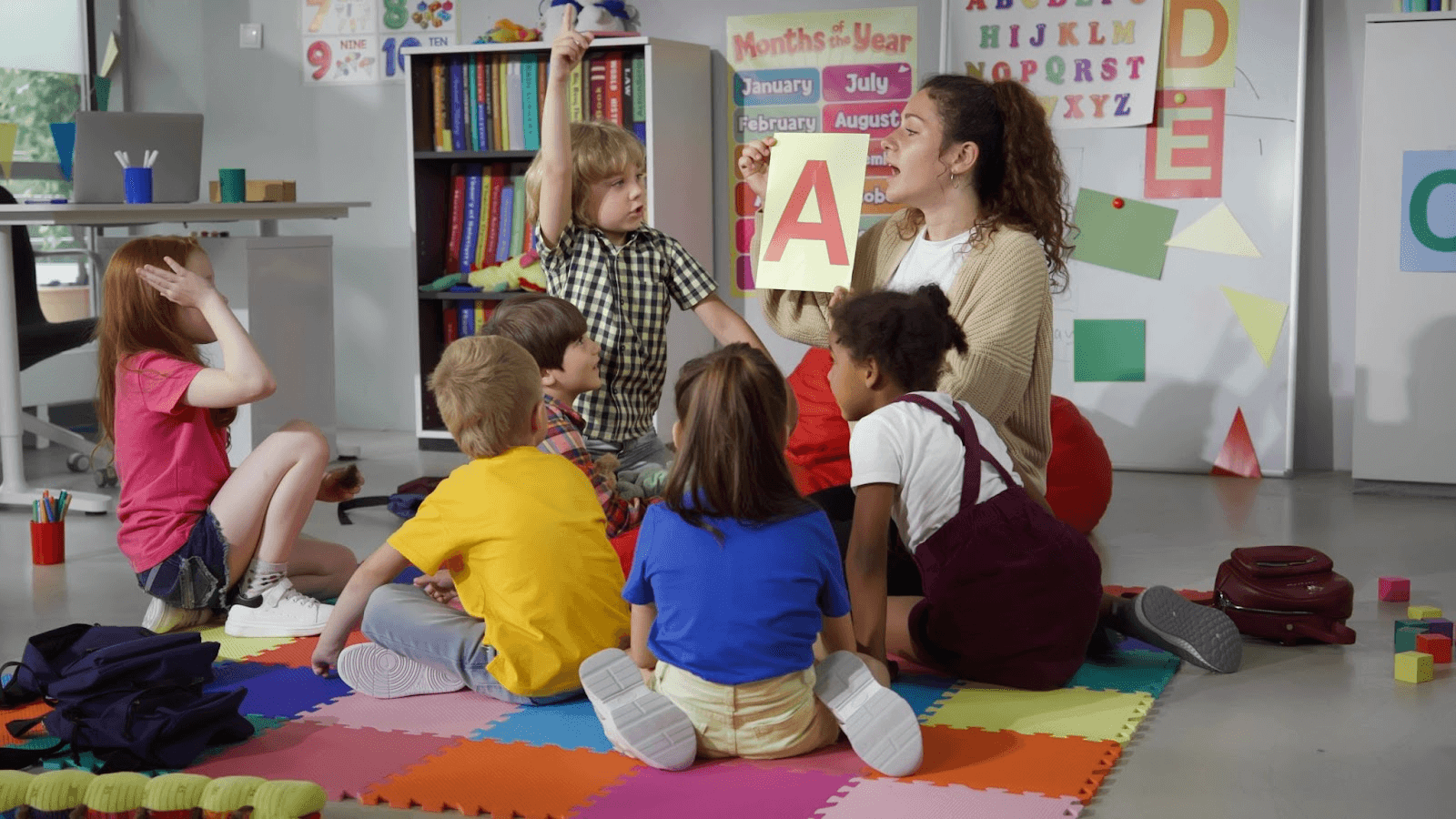The early years of a child’s life are a critical period for development and learning. One question that often arises in parenting circles is: What age is best to start preschool?
While there isn’t a one-size-fits-all answer, research suggests that early childhood education can benefit significantly.
In this article, we’ll explore the factors to consider when determining the right time to enroll your child in preschool, the potential advantages of an early start, and how to make an informed decision tailored to your child’s unique needs and developmental stage.
Whether you’re a first-time parent or navigating the educational journey with multiple children, understanding the importance of preschool and the optimal starting age can set the stage for a successful and enriching learning experience.
What Is Preschool and Its Significance in Early Education?
As a crucial foundation for a child’s educational journey, preschool serves as an introductory step into the world of learning.
Its significance lies in the following:
- Social Development: Preschool fosters social interaction, helping children develop vital communication and interpersonal skills.
- Cognitive Growth: Early exposure to structured learning environments stimulates cognitive development, enhancing problem-solving abilities.
- School Readiness: Preschool equips children with essential pre-academic skills, preparing them for a smoother transition into formal education.
What’s the Typical Preschool Age Range?

The typical age range for preschool enrollment is usually between 3 to 5 years old. At this stage, children are beginning to exhibit a level of independence, curiosity, and social interest that aligns well with the experiences provided in a preschool setting.
However, age ranges vary slightly depending on local educational practices and the specific preschool program.
It’s essential to consider your child’s readiness for the social, emotional, and cognitive aspects of preschool when making this decision.
What Is the Ideal Age to Start Preschool?
Determining the ideal age to start preschool can be influenced by various factors, including a child’s individual development, readiness, and family circumstances.
Generally, enrolling a child between the ages of 3 to 4 can be beneficial as they begin to show an inclination towards social interaction, structured activities, and essential learning.
It’s crucial to consider each child’s uniqueness and avoid pressuring them into a preschool environment before they’re emotionally and developmentally prepared.
What Is Early Entry to Preschool and Its Pros and Cons?
Early entry to preschool, or starting before the typical age range, can have advantages and drawbacks. It’s essential to weigh these factors before making a decision.
Pros
Here are the most common advantages of early entry to preschool.
- Advanced Learning: Early entry can expose children to academic concepts, giving them a head start in formal education.
- Enhanced Social Skills: Interacting with older peers can accelerate social development and communication skills.
- Routine and Structure: Early exposure to a structured learning environment can help establish good study habits and discipline.
- Smooth Transition: Children who start early might find it easier to adapt to longer school days and more intensive curricula later on.
Cons
Know these common downsides of early entry to preschool:
- Developmental Gap: Younger children might struggle to meet older peers’ emotional and cognitive demands.
- Social Challenges: Early entry might lead to feeling out of place or difficulty forming connections with older classmates.
- Pressure and Burnout: Introducing formal education too soon can lead to academic pressure and burnout.
- Lack of Playtime: Early entrants might miss out on the benefits of unstructured play, which is crucial for holistic development.
When contemplating early entry to preschool, it’s essential to carefully evaluate these pros and cons while considering your child’s unique temperament, learning style, and overall well-being.
What Is Late Entry to Preschool and Its Implications?

Delaying entry to preschool beyond the typical age range can affect a child’s educational journey and development.
Here are three critical implications to consider:
- Social Readiness: Late entry might result in a lack of exposure to structured social environments, potentially affecting a child’s ability to interact and collaborate with peers effectively.
- Academic Preparedness: Delayed entry can lead to a missed opportunity for early exposure to basic academic concepts, which could impact a child’s readiness for formal education.
- Transition Challenges: Joining preschool later might lead to difficulties adjusting to the routines, rules, and expectations of the learning environment, potentially causing emotional and behavioral challenges.
Parents considering late entry to preschool should consider these implications, balancing their child’s unique needs, circumstances, and the potential benefits of timely exposure to educational and social experiences.
Factors to Consider When Deciding the Right Age for Preschool Enrollment
Choosing the optimal age for preschool enrollment is a decision that should be influenced by various factors.
Here’s a comprehensive list to guide your choice:
- Developmental Readiness: Assess your child’s cognitive, motor, and emotional development to gauge if they’re ready for structured learning.
- Social Skills: Consider their ability to engage with peers, share, and collaborate, which are essential in a group learning setting.
- Independence: Evaluate whether your child can handle basic tasks independently, like using the restroom and dressing themselves.
- Separation Anxiety: Gauge their comfort level with being away from caregivers and adaptability to new environments.
- Interest in Learning: Observe their curiosity, eagerness to explore, and enjoyment in discovering new things.
- Language Development: Communication skills are crucial for expressing needs, forming relationships, and participating in classroom activities.
- Attention Span: Check if your child can focus on tasks, listen to instructions, and engage in activities for a reasonable duration.
- Emotional Readiness: Consider their emotional resilience and ability to manage their feelings in different social and learning situations.
- Health and Well-being: Ensure your child is physically well and free from chronic health issues that might affect their participation.
- Potty Trained: Many preschools require children to be toilet trained; assess your child’s readiness in this aspect.
- Parental Readiness: Consider your own comfort with separation and support your child’s educational journey.
- Preschool Program: Research the specific program’s philosophy, curriculum, and teaching approach to align with your child’s needs.
- Flexibility of Program: Check if the preschool offers a flexible schedule that accommodates your child’s pace and potential changes.
- Child’s Personality: Take into account their temperament, adaptability, and preferred learning style.
- Sibling Dynamics: If you have older children, consider how their experiences can influence your younger child’s transition and social interactions.
What Are the Benefits of Aligning Preschool Enrollment Age with Kindergarten Cut-Off?

Optimal preschool enrollment involves considering the kindergarten entry age.
Aligning these ages offers several advantages for a seamless educational journey:
- Academic Continuity: A closer age match aids in a smoother transition to kindergarten, minimizing potential gaps in learning.
- Social Confidence: Starting school with similarly aged peers fosters confidence and better social integration.
- Comparable Development: An age-aligned start ensures children share a similar developmental stage, enhancing peer interactions.
- Learning Expectations: Children entering kindergarten on time are more likely to meet age-appropriate academic expectations.
- Long-term Adjustment: An aligned start supports consistent educational milestones, positively influencing later learning phases.
Can Children with Special Needs Attend Preschool at the Same Age?
Children with special needs can attend preschool at the same age as their typically developing peers.
Many preschools offer inclusive programs to provide appropriate support and accommodations, ensuring that children with diverse abilities can engage in meaningful learning experiences.
However, it’s crucial for parents to communicate openly with preschool staff about their child’s specific needs and requirements to ensure a tailored and nurturing educational environment.
What If My Child Isn’t Ready for Preschool?
If your child isn’t quite ready for preschool, it’s important to trust your instincts. Each child’s readiness varies, and waiting until they display more signs of emotional, social, and cognitive preparedness is perfectly acceptable.
You can explore alternative options, such as playgroups or enrichment activities, to foster their development in a less structured setting. Remember that every child follows a unique developmental timeline.
How Can Parents Prepare Their Child for Preschool Regardless of Age?
Regardless of their age, preparing their child for preschool involves thoughtful steps to ensure a positive start to their educational journey.
- Familiarize with Routine: Introduce regular schedules and routines to mimic preschool patterns, easing the transition.
- Social Skills Practice: Organize playdates or group activities to enhance interaction and sharing abilities.
- Encourage Independence: Encourage self-help skills, like dressing and tidying up, to boost confidence.
- Readiness Discussions: Engage in age-appropriate conversations about preschool, addressing fears or excitement.
A Learning Institution that Nurtures Young Minds
The decision to enroll your child in preschool is a significant one that should consider various factors, including developmental readiness, social skills, and individual needs.
Whether you’re opting for an age-aligned entry or tailoring your choice to your child’s unique pace, the aim is to provide a nurturing environment that supports their growth.
Remember, each child’s journey is distinct, and what matters most is setting the stage for a positive and enriching learning experience.
Growing Minds Academy is here to support those seeking a renowned institution that embodies these principles.
Situated in the vibrant city of Houston, TX, Growing Minds Academy offers a comprehensive preschool program to foster holistic development in a supportive and inclusive environment.
With a commitment to academic excellence and personalized care, Growing Minds Academy strives to provide children with a solid foundation for lifelong learning.
Take the first step towards your child’s educational journey by exploring the offerings at Growing Minds Academy today.



